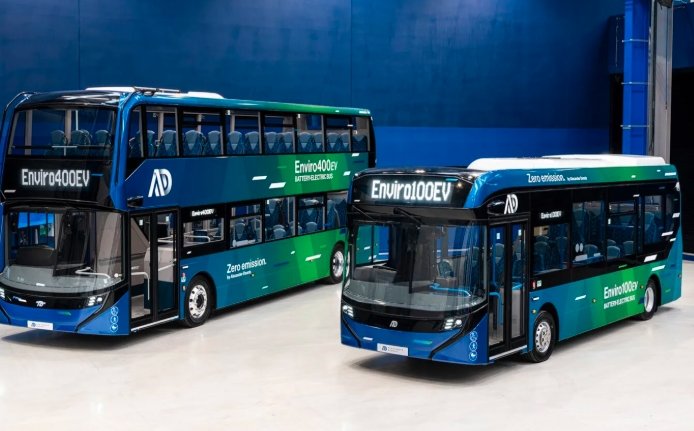Hundreds of bus orders may still not be enough. That’s the blunt warning from Alexander Dennis boss Paul Davies, who told Scottish lawmakers that the company’s future in Scotland hangs by a thread.
Even with new vehicle demand on the table, Davies says it’s “not guaranteed” the firm’s Falkirk and Larbert sites can be saved.
Orders Coming In — But Still Not Enough
Alexander Dennis is Scotland’s last major bus manufacturer. It’s built thousands of vehicles over the decades and has long been one of the Central Belt’s key employers.
But now, it’s at risk of leaving Scotland entirely.
Paul Davies, the company’s managing director, appeared before Holyrood’s economy committee this week. He confirmed that even if the firm secured at least 70 new orders this year, and another 300 in 2026, that might still not be enough to guarantee continued operations at its Scottish sites.
“Even if we meet those targets, the cost and efficiency pressures we face mean we may have to consolidate,” he said.
The consolidation? A potential move to Scarborough, England, where Alexander Dennis already operates a smaller production facility.

Falkirk and Larbert in the Firing Line
Davies stopped short of confirming closures — but the writing is on the wall.
Two weeks ago, the company said it was considering shifting assembly work to England. Now, it’s openly warning of a full relocation if no turnaround materialises.
If that happens, Falkirk and Larbert — the historic heart of Alexander Dennis’s operations — could see hundreds of skilled jobs vanish.
One local union rep said: “This isn’t just about a factory. It’s about a community that’s built buses for generations. People are devastated.”
At its peak, the company employed over 1,000 workers across Scotland. Current estimates suggest around 690 jobs are now at risk.
Government Support? Still Unclear
So far, the Scottish Government has urged patience, but no direct financial aid or industrial intervention has been confirmed.
Economy Secretary Mairi McAllan acknowledged the seriousness of the situation, saying, “We are in ongoing discussions with Alexander Dennis and stand ready to engage further.”
But union leaders say that’s not enough. They’re calling for:
-
Emergency industrial talks with ministers and management
-
A fast-tracked procurement plan to bring orders forward
-
An intervention similar to the ferry or steel industries
So far, nothing concrete has been announced.
Orders, Efficiency, and Electric Dreams
Part of Alexander Dennis’s struggle is tied to the shift towards electric buses. While the company has developed a line of zero-emission models, delays in fleet procurement — especially from cash-strapped local councils — have hurt its bottom line.
Davies stressed that government targets for low-emission buses mean nothing without matching orders.
Here’s a snapshot of the company’s demand gap:
| Year | Bus Orders Needed | Current Confirmed Orders | Status |
|---|---|---|---|
| 2025 | 70 | 40–50 (estimated) | Shortfall |
| 2026 | 300 | Unconfirmed | At risk |
Davies warned that uncertainty over orders — and the rising costs of electric vehicle components — is pushing the company toward consolidation.
Why Scarborough?
So, why move to Scarborough?
It’s about cost. The Scarborough site, while smaller, is seen as more efficient and cheaper to run. It’s closer to some of the firm’s biggest UK customers. And most importantly, it offers flexibility that the aging Falkirk and Larbert sites reportedly lack.
But there’s also another reason: Brexit.
Exporting parts between England and the EU is now more streamlined through existing supply hubs in England. Shifting production south makes customs and logistics simpler.
Some insiders speculate this is the real reason for the move — not just falling orders.
What Happens Next?
Nobody knows for sure. But if no lifeline emerges in the next few months, Scotland could lose its last bus plant.
What Alexander Dennis needs, according to its leadership:
-
A clear procurement pipeline from councils and transit bodies
-
Investment support for EV supply chains
-
Strategic partnership or guarantees from the Scottish and UK governments
As one transport industry analyst put it, “They don’t just need a few orders. They need certainty, stability, and political will.”


















